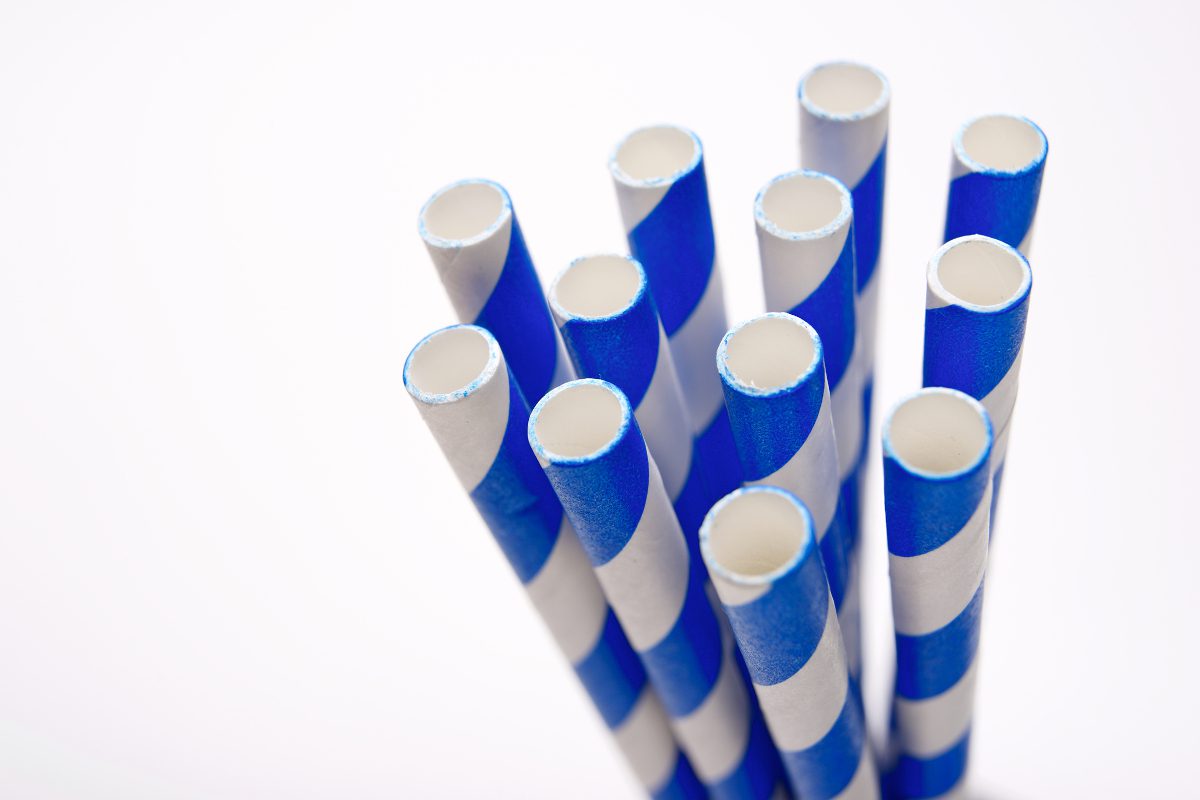
Poly- and perfluoroalkyl substances (PFAS) were found in 18 out of 20 brands of paper drinking straws tested by researchers from the University of Antwerp, in results published on 25 August.
Plant-based straws have become popular alternatives to the single-use plastic products that have been banned in a number of countries in recent years, including the UK.
Described as the first analysis of its kind in Europe, the group tested 39 brands of straws for PFAS, made from five materials: paper, bamboo, glass, stainless steel and plastic. These substances were found in most of the straws tested – most commonly in those made from paper and bamboo.
The results were published in the journal Food Additives and Contaminants.
PFAS had previously been detected in plant-based drinking straws sold in the US, and Thimo Groffen, who led the study, said they wanted to find out if the same were true for those sold in Belgium.
The team bought 39 brands of drinking straw from retail outlets and fast-food restaurants, and subjected them to two rounds of testing for PFAS.
Most of the brands – 27 out of 39 – contained PFAS, with 18 different variants of these chemicals detected in total. The most commonly found PFAS was perfluorooctanoic acid (PFOA), a long-chain PFAS which has been banned in many regions of the world.
Other PFAS detected included trifluoroacetic acid (TFA) and trifluoromethanesulfonic acid (TFMS) – short-chain PFAS introduced in many products in recent decades as a replacement for longer-chain compounds as the latter were increasingly phased out, but which have since been increasingly considered likely to present similar health concerns, while also being more soluble in water (and so more likely to leach out of products like straws).
PFAS were most frequently detected in paper straws, appearing in 90% of the brands tested. They were also detected in four out of five brands of bamboo straw, three out of four of the plastic straw brands, and two out of five of the glass straws. They were not show up in any of the five types of steel straw.
Most likely it is being used in straws as a water-repellent coating, said the group.
The PFAS concentrations detected in this study were low and considered likely to pose only a limited risk to human health, since straws are used infrequently.
However, PFAS could accumulate in the body over the longer term. In comments made to PA, Dr Groffen said: “Small amounts of PFAS, while not harmful in themselves, can add to the chemical load already present in the body.
Responding to the publication of the study, City to Sea’s Policy Manager, Steve Hynd, said that the key learning here was to switch to reusable alternatives.
He said, “This study gives another reason why we are right to move away from single-use straws. It also questions whether just simply swapping one single-use material out for another is best course of action. Our suggestion to consumers is to go without a straw altogether or use reusable stainless-steel straws.”
“For businesses we strongly recommend removing straws from bar and counter tops and only handing out straws when customers ask for them. Every paper, bamboo or other single-use straw that is handed out might not last in the natural environment like a plastic straw, but it will still hold an avoidable environmental footprint. For restaurants and bars where people sit in to enjoy their drinks, customers wanting a straw should be offered a reusable stainless-steel option. It’s time for reusables to become the new norm.”







